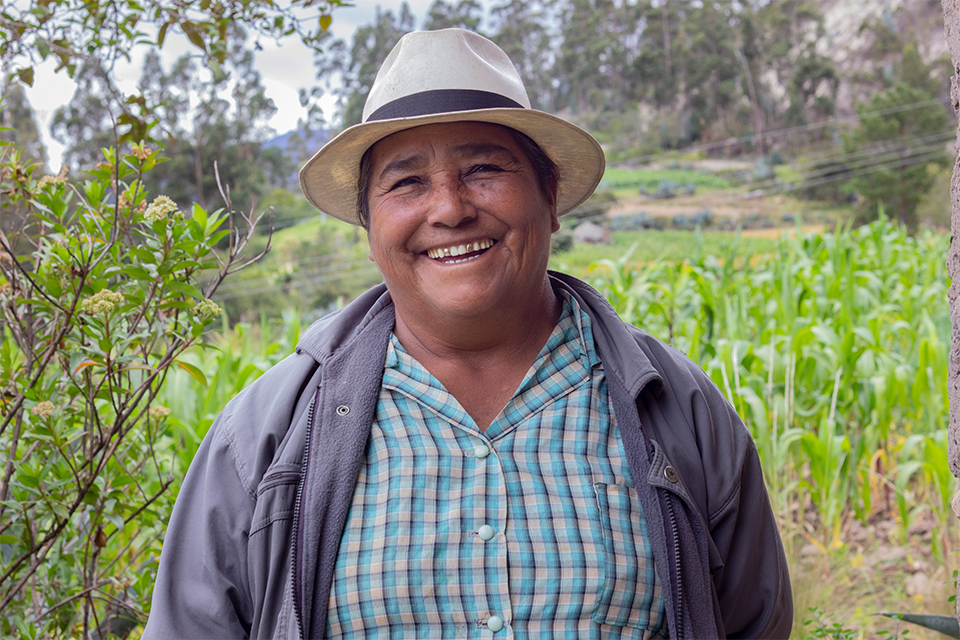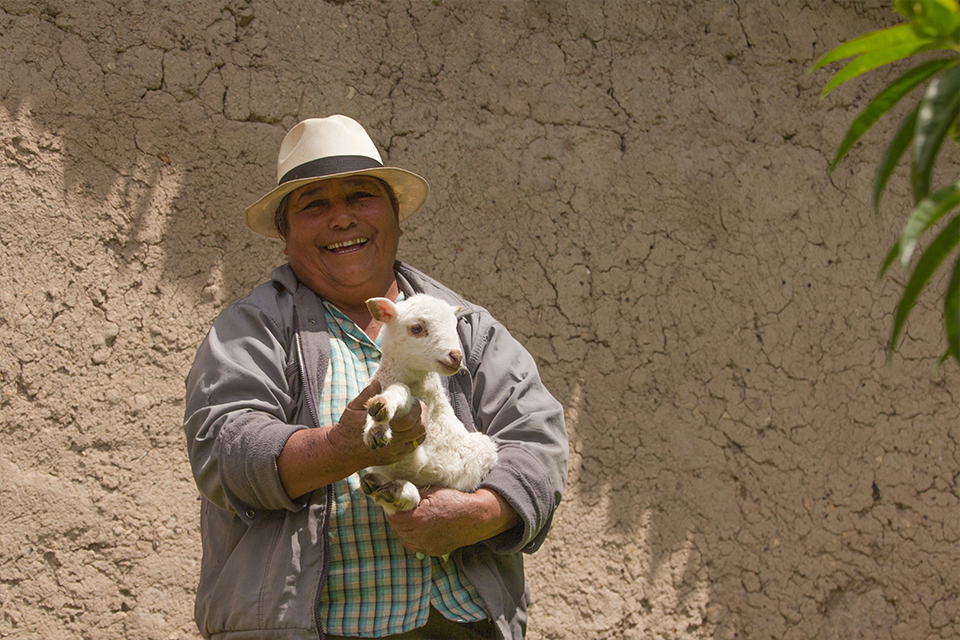If we don't have water, we don't have life
By: Alejandrina Zaruma RamónDate:
I am sixty-three years old. I was born in this little land we call Hornillos. They say that a long time ago there were many brick kilns, but now all that is over. There used to be more people here than in Morasloma. Now there are few of us left, it is empty. I have always lived here; I have not gone to live anywhere else. Here I live alone, planting corn, potatoes, wheat, barley.
The hardest part of farm work is cultivating the land, we suffer a lot weeding because if we do not do that we do not have any fruit. Before, I used to work alone, I used to take the bulls, I used to put them together and put the plow on them, I did all that by myself, but now I can't even walk, much less take the yoke, not anymore, now I must hire a man to help me cultivate the land.

But I take care of my animals, some cows, about ten sheep, I take care of them all. I shear the sheep, I spin the wool, sometimes I sell the yarn or give it to a cousin, and she weaves blankets, saddlebags, or blankets and then we go to Saraguro to sell them.
I liked the experience with UN Women very much. It is the first time I go to workshops, I haven't had that luck before. We learned how to exercise on mats they brought us, so that we would feel good. We exercised our entire body. I liked it because some of the movements made us feel relieved.
I never missed a meeting, and I was incredibly happy, I even went to Cuenca even though I was sick, because I do like to participate.
They also gave us fertilizer for the land so that we could plant, they gave us plants, fruit trees, even a water poncho, because life in the countryside is hard.
With the other women we talked about how much we were earning! When we did the math, we saw that with what they taught us we could save up to forty dollars, and that was incredibly good.
We must take care of the páramo because the only water we have comes from the highlands. That is where we have the streams, from there the water comes down the creek. That water is what we use here in the lower part.
I would like that in the future we do not lack water, which is the main base, because if we do not have water, we do not have life. What are we going to leave those who come after us?

--
This editorial piece is an excerpt from the publication "Agua, mujeres, páramo: poner la vida en el centro de la vida", an editorial product that systematizes testimonials from the beneficiaries of the project "Sustainability of the páramo from a gender perspective", implemented with the Autonomous Decentralized Government of the Province of Azuay, Ecuador and financed by the City of Madrid.
The opinions contained in this blog are the responsibility of the author and do not reflect an official position of UN Women or any other agency of the United Nations System.